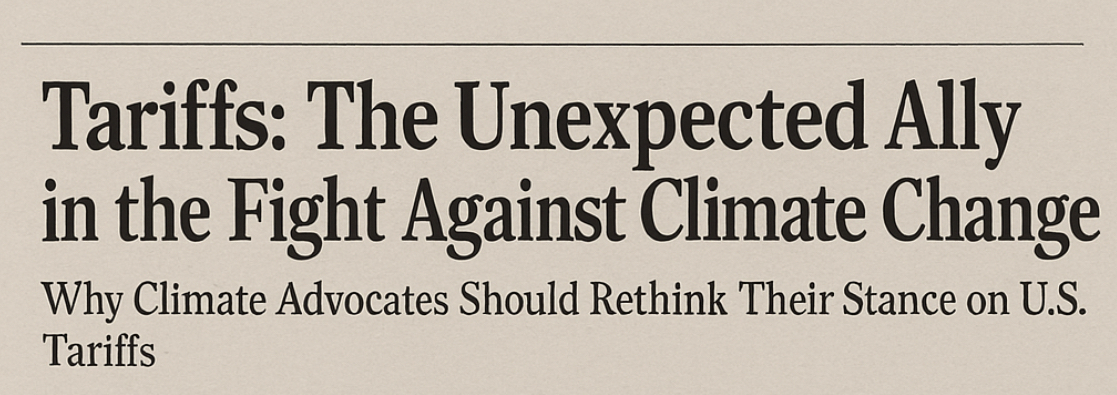
Tariffs as a tool for climate action—opinion piece highlights environmental benefits of reducing global shipping.
-Sackets Harbor NY, By Hans Wilder
Tariffs: The Unexpected Ally in the Fight Against Climate Change
Why Climate Advocates Should Rethink Their Stance on U.S. Tariffs
By all accounts, the world is choking on carbon. Climate change enthusiasts, green activists, and environmentally conscious citizens have been ringing the alarm bells for decades, yet one major contributor to global emissions is rarely addressed: international shipping.
Massive cargo ships—most flying foreign flags—crisscross the oceans day and night, spewing sulfur-laced bunker fuel into the atmosphere. In fact, if the global shipping industry were a country, it would rank as one of the top ten carbon emitters on Earth. And for what? So Americans can have cheap goods made in sweatshops on the other side of the globe?
Enter tariffs—not as a tool of economic protectionism, but as a mechanism for environmental sanity.
Every tariff the U.S. places on foreign goods is a nudge toward localization. It’s a way of encouraging companies to make their products closer to home—preferably right here in America—thereby cutting the carbon footprint tied to shipping those goods thousands of miles. It’s a bold but logical environmental policy, whether it’s sold that way or not.
You’d think the environmental movement would be all over this. Yet too often, tariffs are painted as some kind of right-wing boogeyman. The truth is, if you care about the planet, you should be pro-tariff. Not just for the carbon savings, but for another underreported ecological hazard: invasive species.
Ballast water discharged from international cargo ships has introduced countless foreign species to ecosystems they were never meant to inhabit—devastating fisheries, unbalancing local flora, and causing untold damage to biodiversity. Tariffs, by reducing the volume and frequency of international shipping, act as a natural defense against this silent biological warfare.
So why should America remain the unwitting middleman in a global shipping game that pollutes the air, warms the oceans, and spreads invasive species like a virus? Tariffs can be a corrective measure—a climate tax on reckless globalization.
This isn’t about nationalism. It’s about environmental realism. Liberals and climate advocates can keep calling for net-zero targets, EV incentives, and solar subsidies—but if we don’t address the dirty diesel engines of global shipping and the root causes that drive them, it’s all window dressing.
Let’s stop pretending that endless international shipping is a harmless necessity. It’s a choice—a carbon-spewing, ecosystem-wrecking choice. And tariffs, if used wisely, are a powerful tool to push back against it.
If climate change is truly an existential crisis, then it’s time for climate warriors to take a second look at tariffs. Not as a political weapon, but as a planet-saving one.



